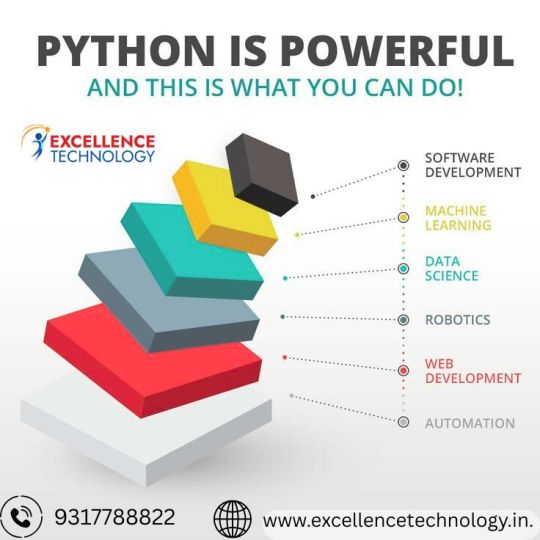#python excellence technology
Explore tagged Tumblr posts
Text
I need Study Blogs to follow!! pls give this a like if you are one , I need to stay motivated !! :)
#codeblr#studyblr#comp sci#data analytics#python#coding#study motivation#study blog#technology#PC#sql#studying#computer science#excel#information technology#university#student life#student
7 notes
·
View notes
Text

JUST PLACED AT PALLADIUM.
#data science#data analytics#business analytics#advance excel#power bi#tableau#sql#python#machine learning#ai technology
1 note
·
View note
Text
Best Power Bi Course at Naresh IT
Unleash the Power of Data with Naresh IT's Power BI Course
In today's data-driven world, the ability to transform raw data into actionable insights is critical. This is where Power BI comes in. By mastering this powerful business intelligence (BI) tool, you can create compelling visualizations, generate informative reports, and gain a deeper understanding of your business.
Naresh IT offers a comprehensive Power BI course designed to equip you with the skills you need to become a data rockstar. Here's what you can expect:
Dive Deep into Power BI:
Go beyond the basics: The course starts with a solid foundation in BI concepts and the role Power BI plays in transforming data.
Unlock the ecosystem: Learn about the entire Power BI landscape, including Power BI Desktop, Power BI Service, and Power BI Mobile.
Become a data wrangling pro: Master data loading, transformation, and manipulation techniques to prepare your data for analysis.
Craft Compelling Visualizations:
Tell a story with data: Learn how to create impactful charts, graphs, and other visuals that effectively communicate insights.
Go beyond the defaults: Explore customization options to tailor your visuals to your specific needs and brand identity.
Engage your audience: Discover best practices for designing clear and concise dashboards that resonate with viewers.
Empower Data Exploration:
Unleash the power of DAX: Learn Data Analysis Expressions (DAX) to write custom formulas and calculations for deeper data exploration.
Ask questions, get answers: Harness the power of Power BI Q&A to gain insights through natural language queries.
Share your findings: Learn how to effectively share reports and dashboards with colleagues and stakeholders.
Real-World Ready:
Project-based learning: Solidify your learnings through real-world project simulations that mimic practical scenarios.
Expert guidance: Benefit from the knowledge and experience of Naresh IT's industry-expert instructors.
Flexible learning options: Choose between live online classes with or without recorded sessions to fit your schedule and learning style.
Investing in Your Future:
A Power BI course at Naresh IT is an investment in your future. This versatile skillset can open doors to exciting career opportunities in data analysis, business intelligence, and other data-driven fields.
Ready to take the plunge? Visit the Naresh IT website to learn more about their Power BI course and transform your data into a powerful asset.
#powerbi#microsoft#businessintelligence#excel#dataanalytics#datascience#data#tableau#datavisualization#sql#dashboard#office#analytics#python#business#dynamics#bi#software#bigdata#digitaltransformation#azure#dataanalysis#powerapps#machinelearning#technology#microsoftpowerbi#cloud#businessanalytics
1 note
·
View note
Text
#coding#css3#html5 css3#software engineering#artificial intelligence#htmlcoding#html5#python#learn to code#excel#management#tips and tricks#information technology
0 notes
Text
AI continues to be useful, annoying everyone
Okay, look - as much as I've been fairly on the side of "this is actually a pretty incredible technology that does have lots of actual practical uses if used correctly and with knowledge of its shortfalls" throughout the ongoing "AI era", I must admit - I don't use it as a tool too much myself.
I am all too aware of how small errors can slip in here and there, even in output that seems above the level, and, perhaps more importantly, I still have a bit of that personal pride in being able to do things myself! I like the feeling that I have learned a skill, done research on how to do a thing and then deployed that knowledge to get the result I want. It's the bread and butter of working in tech, after all.
But here's the thing, once you move beyond beginner level Python courses and well-documented windows applications. There will often be times when you will want to achieve a very particular thing, which involves working with a specialist application. This will usually be an application written for domain experts of this specialization, and so it will not be user-friendly, and it will certainly not be "outsider-friendly".
So you will download the application. Maybe it's on the command line, has some light scripting involved in a language you've never used, or just has a byzantine shorthand command structure. There is a reference document - thankfully the authors are not that insane - but there are very few examples, and none doing exactly what you want. In order to do the useful thing you want to do, they expect you to understand how the application/platform/scripting language works, to the extent that you can apply it in a novel context.
Which is all fine and well, and normally I would not recommend anybody use a tool at length unless they have taken the time to understand it to the degree at which they know what they are doing. Except I do not wish to use the tool at length, I wish to do one, singular operation, as part of a larger project, and then never touch it again. It is unfortunately not worth my time for me to sink a few hours into learning a technology that you will use once for twenty seconds and then never again.
So you spend time scouring the specialist forums, pulling up a few syntax examples you find randomly of their code and trying to string together the example commands in the docs. If you're lucky, and the syntax has enough in common with something you're familiar with, you should be able to bodge together something that works in 15-20 minutes.
But if you're not lucky, the next step would have been signing up to that forum, or making a post on that subreddit, creating a thread called "Hey, newbie here, needing help with..." and then waiting 24-48 hours to hear back from somebody probably some years-deep veteran looking down on you with scorn for not having put in the effort to learn their Thing, setting aside the fact that you have no reason to normally. It's annoying, disruptive, and takes time.
Now I can ask ChatGPT, and it will have ingested all those docs, all those forums, and it will give you a correct answer in 20 seconds about what you were doing wrong. Because friends, this is where a powerful attention model excels, because you are not asking it to manage a complex system, but to collate complex sources into a simple synthesis. The LLM has already trained in this inference, and it can reproduce it in the blink of an eye, and then deliver information about this inference in the form of a user dialog.
When people say that AI is the future of tutoring, this is what it means. Instead of waiting days to get a reply from a bored human expert, the machine knowledge blender has already got it ready to retrieve via a natural language query, with all the followup Q&A to expand your own knowledge you could desire. And the great thing about applying this to code or scripting syntax is that you can immediately verify whether the output is correct but running it and seeing if it performs as expected, so a lot of the danger is reduced (not that any modern mainstream attention model is likely to make a mistake on something as simple a single line command unless it's something barely documented online, that is).
It's incredibly useful, and it outdoes the capacity of any individual human researcher, as well as the latency of existing human experts. That's something you can't argue we've ever had better before, in any context, and it's something you can actively make use of today. And I will, because it's too good not to - despite my pride.
130 notes
·
View notes
Text
just imagine. professor dougdoug
You show up to Professor Wreden's class with a sinking feeling in your gut. Your advisor told you last term that every student in your major should take a programming class at one point- sure, it's not in the degree requirements, but she said it's very relevant to the field.
She even told you the registration number to put in- it's really on you that you didn't realize she gave you the wrong one.
Because you didn't register for CS 110, Fluency with Information Technology, the intro to computer science class for people like you whose programming experience extends to underlining text in HTML.
Instead, you registered for CS 210, Computer Science I, a class whose description clearly reads Prior programming experience expected.
Maybe it won't be so bad, you thought, until your roommate's friend showed you the syllabus from last term. Last night. And yeah, you're fucked.
You'll have to go to the advising office right after class, get this figured out. Surely there's spots left in the 110 class.
As you take your seat, all the way to the side and halfway back in the lecture hall, you pull out your phone to search Rate My Professor. If nothing else, maybe he's not a harsh grader? That's your only hope of passing, really. C's get degrees- if you can even manage that.
Thankfully, his initial rating is pretty good, but that's all you have time to look at before a voice at the front of the room stops all the conversations around you.
"All right everyone, welcome to CS 210, Computer Science I," the voice says, and oh, you must be dreaming.
Tall, brown hair, glasses, facial hair- and those shoulders. Compared to the guys sitting in the seats around you, Professor Wreden (Just call me Doug, he insists) is a Greek god. You barely hear the rest of his introduction as his TA passes out the syllabus, instead staring at his arms and chest. He's wearing a V-neck sweater with the sleeves pushed up to his elbows, revealing copious chest hair and arm hair.
You kick yourself a little bit for sitting further back in the lecture hall- everybody in the front rows is getting an excellent view of the way his sweater and jeans hug his muscles as he paces the front of the room, gesticulating broadly.
Goddamn is the only thought in your brain as he finishes explaining the syllabus and jumps into talking about Python. Even from back here, you can see his eyes get a little brighter when he starts talking about programming.
Gorgeous and passionate- it's hard enough to find a professor that has just one of those qualities, let alone both. And in the computer science department, no less.
How has nobody told you about this guy before?
As you leave class that day, you make sure to take note of his office hours. You'll be going to every single one.
#too bad rate my professor got rid of hotness ratings otherwise professor wreden would be 5/5#dougdoug#professor wreden au#idk i might write more abt this later
24 notes
·
View notes
Note
wwx is sooo smart! in a modern setting, what subject do you think he would teach? what about in college?
seriously, i can wax poetic about wwx’s intelligence, ingenuity and smartness any day!! and ooooh, your question puts me in a bind because i cannot just name one subject. i think wei wuxian is good at too many things and the younger generations deserve to have his mentorship for an array of subjects. but i’m gonna try my best to just discuss one for this post!
see, i don’t want to mention fine arts because i think wwx would be a hobbyist about it and prefer to be one of those guys hopping around museums and galleries and curating a small but insightful review blog to engage with that side of the arts. an aspect of him that his students would probably find a bit later once they go stalking their professor’s social media profiles (which wwx would be VERY lowkey about) and find that, oh, the cool professor is so much cooler still.
also, because this got me thinking way too much, before we get to the subject, imagining wwx as a full time faculty member–i’ll go out on this fanfic fuelled limb and say he would totally be the teacher coordinator for a university play and/or the debate society! the latter especially, because if the second siege showed us nothing else, it made clear that wwx knows how to frame his arguments logically w/o getting too personal/emotional (not that some debates don’t need an emotional input!) and knows how to keep the audience hooked to his words. the same goes for the deft way in which he handled his defence at the nightless city. so, yeah.
okay, so the subject i think wwx would teach has to be....
physics!!!!!
like this is the one that pops in my mind first and foremost and it fits wwx so well and not just in the realm of engineering. not that wwx’s inventing streak won’t be profoundly useful there but when it comes teaching the subject, when i say “physics” i mean the pure science. that would be wei wuxian’s jam!! he would come up with elaborate setups to simply but elegantly explain and exhibit a complex physics law or phenomenon. he would assign practical-oriented projects to his students and allow for fun which is sorely lacking in intensive pure science classes! he would make time to go over some relevant historic trivia about some theory a guy in the 18th century came up with and he would TOTALLY gossip about the scientists of the past and the scandals so many of them were engaged in. and the most important part!! he would conceptualise different and unique experiments for his class to practice for that part of their grade! alot of the time we forget how important the practical ingenuity of physics professors need to be when it’s not applied physics because the emphasis on the theoretical classes overshadows it. but wei wuxian would plan the practical course himself, even discuss the experimental configurations with his students, and design a whole booklet with them! and ykw?? he’d teach them coding too! which is one aspect of our technological era that i think wwx would excel at because there is so much craftiness required for coding and since coding is so essential for simulations and analysis in physics, wwx could teach them...some python, lol. 😭😭 also, i want to add, wei wuxian would 100% be that college professor with a league of papers published and held in high regard so that for each course he teaches, his own work could be a relevant reference which his students would find SO cool and maybe even funny.
okay, i’m done feeding you my physics professor!wwx agenda but i also think him teaching an ethics class would be fun. and also P.E. no but imagine a sociology course with wei wuxian? or a music major? the possibilities are literally endless but you probably won’t catch wwx anywhere near a culinary school.
#ask#now why do i suddenly wanna write a modern au with profs wwx and lwj#coz professor wei wuxian would be SUCH A DELIGHT#and lan wangji is such an awesome patient fatherly teacher too#they’d be a power duo in their academia circles#wei wuxian appreciation#wei wuxian#mxtx mdzs#mdzs
44 notes
·
View notes
Note
do you have any more strongly held IT/hardware/software opinions, unpopular or not?
They should put all the ports back on everything. I want 6 usb ports. I want hdmi. I want eithernet. I want 2.5mm audio jack!!
Bluetooth can GET FUCKED.
Dual factor authentication is the scurge of the earth.
Most antivirus software is more disruptive than the viruses.
Adverts in my operating system is some sort of black mirror level hellscape.
Windows peaked at Pinball 3000 and it's been downhill ever since.
MS Excell is an arsehole but it's 9000 x better than Google sheets.
Python is for children.
Node modules are out of control and probably going to bring about the real technological meltdown we thought would happen in 2000.
AI CAN GET IN THE ABSOLUTE BIN.
14 notes
·
View notes
Text
instagram
Hey there! 🚀 Becoming a data analyst is an awesome journey! Here’s a roadmap for you:
1. Start with the Basics 📚:
- Dive into the basics of data analysis and statistics. 📊
- Platforms like Learnbay (Data Analytics Certification Program For Non-Tech Professionals), Edx, and Intellipaat offer fantastic courses. Check them out! 🎓
2. Master Excel 📈:
- Excel is your best friend! Learn to crunch numbers and create killer spreadsheets. 📊🔢
3. Get Hands-on with Tools 🛠️:
- Familiarize yourself with data analysis tools like SQL, Python, and R. Pluralsight has some great courses to level up your skills! 🐍📊
4. Data Visualization 📊:
- Learn to tell a story with your data. Tools like Tableau and Power BI can be game-changers! 📈📉
5. Build a Solid Foundation 🏗️:
- Understand databases, data cleaning, and data wrangling. It’s the backbone of effective analysis! 💪🔍
6. Machine Learning Basics 🤖:
- Get a taste of machine learning concepts. It’s not mandatory but can be a huge plus! 🤓🤖
7. Projects, Projects, Projects! 🚀:
- Apply your skills to real-world projects. It’s the best way to learn and showcase your abilities! 🌐💻
8. Networking is Key 👥:
- Connect with fellow data enthusiasts on LinkedIn, attend meetups, and join relevant communities. Networking opens doors! 🌐👋
9. Certifications 📜:
- Consider getting certified. It adds credibility to your profile. 🎓💼
10. Stay Updated 🔄:
- The data world evolves fast. Keep learning and stay up-to-date with the latest trends and technologies. 📆🚀
. . .
#programming#programmers#developers#mobiledeveloper#softwaredeveloper#devlife#coding.#setup#icelatte#iceamericano#data analyst road map#data scientist#data#big data#data engineer#data management#machinelearning#technology#data analytics#Instagram
8 notes
·
View notes
Text
Python Programming Language: A Comprehensive Guide
Python is one of the maximum widely used and hastily growing programming languages within the world. Known for its simplicity, versatility, and great ecosystem, Python has become the cross-to desire for beginners, professionals, and organizations across industries.
What is Python used for

🐍 What is Python?
Python is a excessive-stage, interpreted, fashionable-purpose programming language. The language emphasizes clarity, concise syntax, and code simplicity, making it an excellent device for the whole lot from web development to synthetic intelligence.
Its syntax is designed to be readable and easy, regularly described as being near the English language. This ease of information has led Python to be adopted no longer simplest through programmers but also by way of scientists, mathematicians, and analysts who may not have a formal heritage in software engineering.
�� Brief History of Python
Late Nineteen Eighties: Guido van Rossum starts work on Python as a hobby task.
1991: Python zero.9.0 is released, presenting classes, functions, and exception managing.
2000: Python 2.Zero is launched, introducing capabilities like list comprehensions and rubbish collection.
2008: Python 3.Zero is launched with considerable upgrades but breaks backward compatibility.
2024: Python three.12 is the modern day strong model, enhancing performance and typing support.
⭐ Key Features of Python
Easy to Learn and Use:
Python's syntax is simple and similar to English, making it a high-quality first programming language.
Interpreted Language:
Python isn't always compiled into device code; it's far done line by using line the usage of an interpreter, which makes debugging less complicated.
Cross-Platform:
Python code runs on Windows, macOS, Linux, and even cell devices and embedded structures.
Dynamic Typing:
Variables don’t require explicit type declarations; types are decided at runtime.
Object-Oriented and Functional:
Python helps each item-orientated programming (OOP) and practical programming paradigms.
Extensive Standard Library:
Python includes a rich set of built-in modules for string operations, report I/O, databases, networking, and more.
Huge Ecosystem of Libraries:
From data technological know-how to net development, Python's atmosphere consists of thousands of programs like NumPy, pandas, TensorFlow, Flask, Django, and many greater.
📌 Basic Python Syntax
Here's an instance of a easy Python program:
python
Copy
Edit
def greet(call):
print(f"Hello, call!")
greet("Alice")
Output:
Copy
Edit
Hello, Alice!
Key Syntax Elements:
Indentation is used to define blocks (no curly braces like in different languages).
Variables are declared via task: x = 5
Comments use #:
# This is a remark
Print Function:
print("Hello")
📊 Python Data Types
Python has several built-in data kinds:
Numeric: int, go with the flow, complicated
Text: str
Boolean: bool (True, False)
Sequence: listing, tuple, range
Mapping: dict
Set Types: set, frozenset
Example:
python
Copy
Edit
age = 25 # int
name = "John" # str
top = 5.Nine # drift
is_student = True # bool
colors = ["red", "green", "blue"] # listing
🔁 Control Structures
Conditional Statements:
python
Copy
Edit
if age > 18:
print("Adult")
elif age == 18:
print("Just became an person")
else:
print("Minor")
Loops:
python
Copy
Edit
for color in hues:
print(coloration)
while age < 30:
age += 1
🔧 Functions and Modules
Defining a Function:
python
Copy
Edit
def upload(a, b):
return a + b
Importing a Module:
python
Copy
Edit
import math
print(math.Sqrt(sixteen)) # Output: four.0
🗂️ Object-Oriented Programming (OOP)
Python supports OOP functions such as lessons, inheritance, and encapsulation.
Python
Copy
Edit
elegance Animal:
def __init__(self, call):
self.Call = name
def communicate(self):
print(f"self.Call makes a valid")
dog = Animal("Dog")
dog.Speak() # Output: Dog makes a legitimate
🧠 Applications of Python
Python is used in nearly each area of era:
1. Web Development
Frameworks like Django, Flask, and FastAPI make Python fantastic for building scalable web programs.
2. Data Science & Analytics
Libraries like pandas, NumPy, and Matplotlib permit for data manipulation, evaluation, and visualization.
Three. Machine Learning & AI
Python is the dominant language for AI, way to TensorFlow, PyTorch, scikit-research, and Keras.
4. Automation & Scripting
Python is extensively used for automating tasks like file managing, device tracking, and data scraping.
Five. Game Development
Frameworks like Pygame allow builders to build simple 2D games.
6. Desktop Applications
With libraries like Tkinter and PyQt, Python may be used to create cross-platform computing device apps.
7. Cybersecurity
Python is often used to write security equipment, penetration trying out scripts, and make the most development.
📚 Popular Python Libraries
NumPy: Numerical computing
pandas: Data analysis
Matplotlib / Seaborn: Visualization
scikit-study: Machine mastering
BeautifulSoup / Scrapy: Web scraping
Flask / Django: Web frameworks
OpenCV: Image processing
PyTorch / TensorFlow: Deep mastering
SQLAlchemy: Database ORM
💻 Python Tools and IDEs
Popular environments and tools for writing Python code encompass:
PyCharm: Full-featured Python IDE.
VS Code: Lightweight and extensible editor.
Jupyter Notebook: Interactive environment for statistics technological know-how and studies.
IDLE: Python’s default editor.
🔐 Strengths of Python
Easy to study and write
Large community and wealthy documentation
Extensive 0.33-birthday celebration libraries
Strong support for clinical computing and AI
Cross-platform compatibility
⚠️ Limitations of Python
Slower than compiled languages like C/C++
Not perfect for mobile app improvement
High memory usage in massive-scale packages
GIL (Global Interpreter Lock) restricts genuine multithreading in CPython
🧭 Learning Path for Python Beginners
Learn variables, facts types, and control glide.
Practice features and loops.
Understand modules and report coping with.
Explore OOP concepts.
Work on small initiatives (e.G., calculator, to-do app).
Dive into unique areas like statistics technological know-how, automation, or web development.
#What is Python used for#college students learn python#online course python#offline python course institute#python jobs in information technology
2 notes
·
View notes
Text
Why Python Will Thrive: Future Trends and Applications
Python has already made a significant impact in the tech world, and its trajectory for the future is even more promising. From its simplicity and versatility to its widespread use in cutting-edge technologies, Python is expected to continue thriving in the coming years. Considering the kind support of Python Course in Chennai Whatever your level of experience or reason for switching from another programming language, learning Python gets much more fun.

Let's explore why Python will remain at the forefront of software development and what trends and applications will contribute to its ongoing dominance.
1. Artificial Intelligence and Machine Learning
Python is already the go-to language for AI and machine learning, and its role in these fields is set to expand further. With powerful libraries such as TensorFlow, PyTorch, and Scikit-learn, Python simplifies the development of machine learning models and artificial intelligence applications. As more industries integrate AI for automation, personalization, and predictive analytics, Python will remain a core language for developing intelligent systems.
2. Data Science and Big Data
Data science is one of the most significant areas where Python has excelled. Libraries like Pandas, NumPy, and Matplotlib make data manipulation and visualization simple and efficient. As companies and organizations continue to generate and analyze vast amounts of data, Python’s ability to process, clean, and visualize big data will only become more critical. Additionally, Python’s compatibility with big data platforms like Hadoop and Apache Spark ensures that it will remain a major player in data-driven decision-making.
3. Web Development
Python’s role in web development is growing thanks to frameworks like Django and Flask, which provide robust, scalable, and secure solutions for building web applications. With the increasing demand for interactive websites and APIs, Python is well-positioned to continue serving as a top language for backend development. Its integration with cloud computing platforms will also fuel its growth in building modern web applications that scale efficiently.
4. Automation and Scripting
Automation is another area where Python excels. Developers use Python to automate tasks ranging from system administration to testing and deployment. With the rise of DevOps practices and the growing demand for workflow automation, Python’s role in streamlining repetitive processes will continue to grow. Businesses across industries will rely on Python to boost productivity, reduce errors, and optimize performance. With the aid of Best Online Training & Placement Programs, which offer comprehensive training and job placement support to anyone looking to develop their talents, it’s easier to learn this tool and advance your career.

5. Cybersecurity and Ethical Hacking
With cyber threats becoming increasingly sophisticated, cybersecurity is a critical concern for businesses worldwide. Python is widely used for penetration testing, vulnerability scanning, and threat detection due to its simplicity and effectiveness. Libraries like Scapy and PyCrypto make Python an excellent choice for ethical hacking and security professionals. As the need for robust cybersecurity measures increases, Python’s role in safeguarding digital assets will continue to thrive.
6. Internet of Things (IoT)
Python’s compatibility with microcontrollers and embedded systems makes it a strong contender in the growing field of IoT. Frameworks like MicroPython and CircuitPython enable developers to build IoT applications efficiently, whether for home automation, smart cities, or industrial systems. As the number of connected devices continues to rise, Python will remain a dominant language for creating scalable and reliable IoT solutions.
7. Cloud Computing and Serverless Architectures
The rise of cloud computing and serverless architectures has created new opportunities for Python. Cloud platforms like AWS, Google Cloud, and Microsoft Azure all support Python, allowing developers to build scalable and cost-efficient applications. With its flexibility and integration capabilities, Python is perfectly suited for developing cloud-based applications, serverless functions, and microservices.
8. Gaming and Virtual Reality
Python has long been used in game development, with libraries such as Pygame offering simple tools to create 2D games. However, as gaming and virtual reality (VR) technologies evolve, Python’s role in developing immersive experiences will grow. The language’s ease of use and integration with game engines will make it a popular choice for building gaming platforms, VR applications, and simulations.
9. Expanding Job Market
As Python’s applications continue to grow, so does the demand for Python developers. From startups to tech giants like Google, Facebook, and Amazon, companies across industries are seeking professionals who are proficient in Python. The increasing adoption of Python in various fields, including data science, AI, cybersecurity, and cloud computing, ensures a thriving job market for Python developers in the future.
10. Constant Evolution and Community Support
Python’s open-source nature means that it’s constantly evolving with new libraries, frameworks, and features. Its vibrant community of developers contributes to its growth and ensures that Python stays relevant to emerging trends and technologies. Whether it’s a new tool for AI or a breakthrough in web development, Python’s community is always working to improve the language and make it more efficient for developers.
Conclusion
Python’s future is bright, with its presence continuing to grow in AI, data science, automation, web development, and beyond. As industries become increasingly data-driven, automated, and connected, Python’s simplicity, versatility, and strong community support make it an ideal choice for developers. Whether you are a beginner looking to start your coding journey or a seasoned professional exploring new career opportunities, learning Python offers long-term benefits in a rapidly evolving tech landscape.
#python course#python training#python#technology#tech#python programming#python online training#python online course#python online classes#python certification
2 notes
·
View notes
Text
Business Analytics vs. Data Science: Understanding the Key Differences

In today's data-driven world, terms like "business analytics" and "data science" are often used interchangeably. However, while they share a common goal of extracting insights from data, they are distinct fields with different focuses and methodologies. Let's break down the key differences to help you understand which path might be right for you.
Business Analytics: Focusing on the Present and Past
Business analytics primarily focuses on analyzing historical data to understand past performance and inform current business decisions. It aims to answer questions like:
What happened?
Why did it happen?
What is happening now?
Key characteristics of business analytics:
Descriptive and Diagnostic: It uses techniques like reporting, dashboards, and data visualization to summarize and explain past trends.
Structured Data: It often works with structured data from databases and spreadsheets.
Business Domain Expertise: A strong understanding of the specific business domain is crucial.
Tools: Business analysts typically use tools like Excel, SQL, Tableau, and Power BI.
Focus: Optimizing current business operations and improving efficiency.
Data Science: Predicting the Future and Building Models
Data science, on the other hand, focuses on building predictive models and developing algorithms to forecast future outcomes. It aims to answer questions like:
What will happen?
How can we make it happen?
Key characteristics of data science:
Predictive and Prescriptive: It uses machine learning, statistical modeling, and AI to predict future trends and prescribe optimal actions.
Unstructured and Structured Data: It can handle both structured and unstructured data from various sources.
Technical Proficiency: Strong programming skills (Python, R) and a deep understanding of machine learning algorithms are essential.
Tools: Data scientists use programming languages, machine learning libraries, and big data technologies.
Focus: Developing innovative solutions, building AI-powered products, and driving long-term strategic initiatives.
Key Differences Summarized:

Which Path is Right for You?
Choose Business Analytics if:
You are interested in analyzing past data to improve current business operations.
You have a strong understanding of a specific business domain.
You prefer working with structured data and using visualization tools.
Choose Data Science if:
You are passionate about building predictive models and developing AI-powered solutions.
You have a strong interest in programming and machine learning.
You enjoy working with both structured and unstructured data.
Xaltius Academy's Data Science & AI Course:
If you're leaning towards data science and want to delve into machine learning and AI, Xaltius Academy's Data Science & AI course is an excellent choice. This program equips you with the necessary skills and knowledge to become a proficient data scientist, covering essential topics like:
Python programming
Machine learning algorithms
Data visualization
And much more!
By understanding the distinct roles of business analytics and data science, you can make an informed decision about your career path and leverage the power of data to drive success.
2 notes
·
View notes
Text
What is Mern stack And Its importance? Before that I will Tell you the best institute for Mern stack course in Chandigarh.

What is Mern stack?
MERN Stack is a popular JavaScript-based technology stack used for building full-stack web applications. It consists of four key technologies:
MongoDB: A NoSQL database that stores data in a flexible, JSON-like format.
Express.js: A lightweight and fast backend framework for Node.js.
React.js: A front-end JavaScript library for building user interfaces.
Node.js: A runtime environment that allows JavaScript to run on the server side.
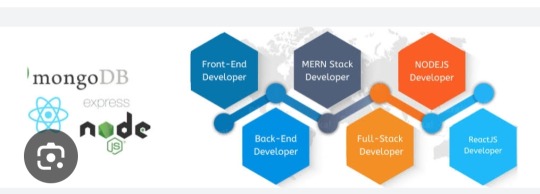
Importance of Mern Stack :
Full-Stack JavaScript – Uses JavaScript for frontend and backend, simplifying development.
High Performance – Node.js ensures fast, scalable applications.
Cost-Effective – Open-source, reducing development costs.
Rapid Development – React’s reusable components speed up UI building.
Flexibility – Suitable for web apps, SPAs, eCommerce, and real-time applications.
Scalability – MongoDB handles large data efficiently.
Strong Community Support – Large developer base ensures continuous updates and support.
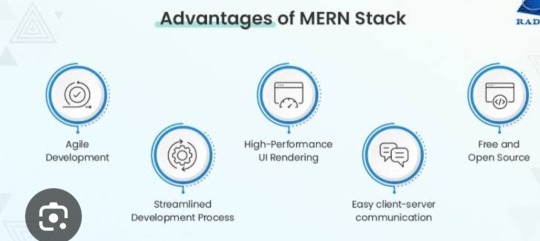
Now i will tell you the best institute for Mern stack course in Chandigarh .
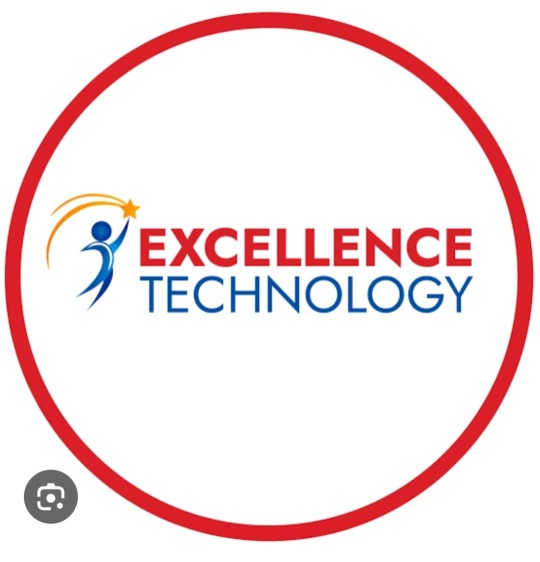
Excellence Technology is a leading EdTech (Educational technology) company dedicated to empowering individuals with cutting -edge IT skills and bridging the gap between education and industry demands. Specializing in IT training ,carrer development, and placement assistance ,the company equipts learners with the technical expertise and practical experience needed to thrive in today's competitive tech landscape. We provide IT courses like python ,Full stack Development, Web Design ,Graphic Design and Digital Marketing.
Contact Us for more details: 93177-88822
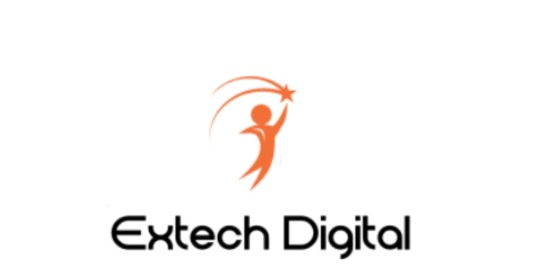
Extech Digital is a leading software development company dedicated to empowering individuals with cutting -edge IT skills and bridging the gap between education and industry demands. Specializing in IT training ,carrer development, and placement assistance ,the company equipt learners with the technical expertise and practical experience needed to thrive in today's competitive tech landscape. e provide IT courses like Python ,Full stack Development, Web Design ,Graphic Design and Digital Marketing.
Contact Us for more details: 93177-88822

Excellence academy is a leading software development company dedicated to empowering individual with cutting edge IT skills and bridging the gap between education and industry demands.specializing in IT training, career development, and placement assistance, the company equits learners with the technical expertise and practical experience needed to thrive in today's landscape. We provide IT courses like python, full stack development,Web design, and Digital marketing.
Contact Us for more details: 93177-88822
About Author
Nikita Thakur
Mern stack AI Developer/ 2+ years of experience
Excellence technology
Professional summary
Nikita thakur is a skilled MERN Stack AI Developer with over 2 years of experience at Excellence Technology. Proficient in MongoDB, Express.js, React.js, and Node.js, she integrates AI solutions to build scalable, high-performance web applications. Nikita excels in developing innovative solutions, enhancing user experiences, and driving business growth through technology.
2 notes
·
View notes
Note
can we have... all the etymology
All of the characters on my toyhouse should have etymologies for their names and middle names, so check there for those. Aside from that, some interesting ones include:
ColdR: “Cold air”, gives a vaguely sci-fi feel. As the title of the game itself, it refers to the prevalence of ice in the game’s mechanics and worldbuilding.
HotR: “Hot air”, matches ColdR
World of Zero: “Zero” brings to mind a void, and comes from such terms as "subzero" and "absolute zero". “World” here refers to a realm, not a literal world. The “World of Zero” is found below the regular “World”, which could be considered “1” in this scenario.
World of Infinity: The opposite of the “World of Zero”. If Absolute Zero is the coldest temperature, then the hottest temperature is infinite. The World of Infinity’s status as being accessed from Zero portals within the World of Zero is inspired by “division by zero” and the impossible paradox it causes. It is also themed after “integer underflow”, a programming quirk that occurs when trying to go below the lowest number possible in a given program - causing it to “underflow” to the highest number instead, which in this case is “Infinity”.
Many family names are named after programming languages, or other programming terms, while many first names are named after sea animals. This creates a feel of thematic consistency and also reflects on the series' themes of environmentalism and technology. Some notable family names include:
Nothyp: Python backwards.
Clua: C + Lua, brings to mind a cold and icy image, alliterates with Cold(R) and Coralde
Scripte: Originally was "Avascuript", from JavaScript, but it felt like a mouthful so it was shortened, with an E added for the French feel.
Hetamel: HTML. Feels kind of wet.
Unixell: From Unix and Excel.
Soluta: A play on “Clua”; if “Clua” is a “Clue”, then “Soluta” is the “Solution”.
Visbaze: From “visual basic” programming language. “Viz” includes an “ice”-like sound.
Wada: Japanese family name that means “harmonious rice paddy”, which doesn’t really pertain to the character it's on but suggests she has Japanese ancestry. Contains the programming language “Ada”.
Psysol: From “psy” and “sol”, as in sun, alluding to the character’s psychic fire powers. Also sounds like “solitude”, giving the impression Iolas is a loner.
Lascap: Anagram of “Pascal”, a programming language. Alliterates with Lybia, the name of the most important Lascap.
PSI Age: Evokes the idea of a new time period, and puts immediate emphasis on the importance of PSI to the setting. Also, if ColdR Prime was the “ice age”, then this is the “PSI age”.
Devil's Darning Needle: “Devil’s darning needle” is an alternate name for the stickbug, which XXX physically resembles with her tall and gangly physique. Devil gives the impression of a rebellious and/or gothic person, while darning needles refer to her knitting passion. It also evokes the idea of her “piercing” through the Sectors. The connection with needles and knitting also brings to mind puppetry. XXX herself has been used as a “puppet” by various people through her life, ranging from ???, to !!!, to her current situation with the Sectors.
Cradlelands: The Cradlelands are an isolated place, like a “cradle” for the people living in them. It is also a very “primal” kind of place, giving a sense of, say, “humanity’s cradle”; and for Erco III and co, it is seen as a place of origin; a place that feels like home. One could also link it to how Berceuse takes care of her subjects; very protectively, as someone would cradle their child. And, well, they’re lands. So, Cradlelands. It’s meant to give the idea of a vaster, uncharted place, that one may want to explore. It’s home, but much is unknown about it, and they want to know more.
Alright let's get into the stuff yall will actually eat up.
Emperor Berceuse: “Berceuse” means “lullaby”, and in French also refers to a rocking motion. This overall ties into the same sort of themes and aesthetics you would get from “cradle”. It also fits the intense care she provides towards Nester, and later her subjects in the Cradlelands.
Notably, both she and Erco share an “Erc”. Berceuse also ends in an “Eus” sound, which brings to mind the likes of “Zeus”, “Deus” and other words associated with divinity, helping create the impression of a figure bearing incredible power.
“Emperor” is added to the title to give the impression of a highly powerful, outright tyrannical ruler. It is used instead of “Empress” due to it suiting Berceuse’s overall image better; Berceuse, as far as ruling goes, is very gender-neutral and does not place any emphasis on her femininity. (Also, it helps make her seem less like a person and more like some kind of mythical force; and her identity may originally have been a secret, and she is still intended to leave much of her past shrouded in mystery in-universe.) It is also a name that could fit well in a fantasy masquerade, while also suiting a more science-fantasy type of antagonist.
Daemon: “Daemon” is a word for a program that runs as a background process in computing; Daemon, too, is essentially responsible for handing much of the background tasks for the Berceuse Empire in her sister’s stead; it being tied to technology helps make Daemon appear as a very mechanical and scientific type of character.
Yet it also has many fantasy connotations. A daemon in greek mythology was a type of guiding spirit, which she could be considered to be towards Berceuse; almost like some kind of guardian angel (which she visually resembles with her wings). And yet, at the same time, it also refers to demons. A common motif with Daemon is that she is an “angel” towards some and a “devil” towards other; and even her name suits this.
Berceuse Empire: Since Berceuse is an Emperor, it is logical that what she rules would be an Empire. Since much of it centers around her and her image, it is named directly after herself. It also gives the image of an oppressive, regimented kingdom, fitting her tyranny and conquering.
Aye-aye: From “Erco II”, or specifically the “II” part at the end, which, when spelled separately (as it is intended to be), sounds like “Aye aye”. Also comes from the animal, which she has some features in common with, such as her “ears” or her orange visor. Since it’s an animal’s name, it also gives a bit of a wild or animalistic image, which suits her.
It also creates an opportunity for wordplay; as she is a captain to some rebel groups, one could imagine people saying “Aye-aye, captain”; which could both be an expression of agreement with her, or a description of her. The fact that it sounds like an agreement specifically may also give the idea that it is difficult to disagree with her.
Aion: From “Erco I”, specifically the “I”, and the Greek deity “Aion”, who is a deity representing the cycle of time; Aion, of course, happens to have time powers, and it being a deity gives Aion a cool and strong image. Aion representing cycles also ties into OUROBOROS, which Aion has notable ties to.
Aia: From “Amonea I” and Aion; essentially being a feminine version of his own name. Aia’s design looks particularly mythical, as well, and her design is reminiscent of a spartan outfit, continuing the Greek theme.
OUROBOROS: From the name of the ancient symbol, which is often used to represent cycles; and OUROBOROS, or at least the form seen so far, is symbolic of the cycle of pain Ophione and Astralde go through. The symbol also specifically depicts a snake, which Ophione is already symbolized with (And Ophione is actually aware of OUROBOROS, unlike Astralde.) OUROBOROS being in all caps is something not seen often in ColdR (or Sekaiju), which helps give the impression that it is a level above other entities seen in the former (and most in the later).
Dogma of Self: Represents the ultimate expression of the self and the ego; a power so strong it is imposed onto others. In other words, a “Dogma” representing the “Self”. It is achieved when one fully realizes their own independence and individuality; when no one but themselves is determining who they are; when the only one making “Dogmas” about their identity is themselves. Finally, “Dogma of Selves” tend to involve abilities so powerful they practically change the rules of reality; shifting the “dogmas” of reality to the “dogmas” of the self.
#coldr#wowsers this is a big post#emperor berceuse#berceuse sekaiju#daemon sekaiju#etymology#many of them
5 notes
·
View notes
